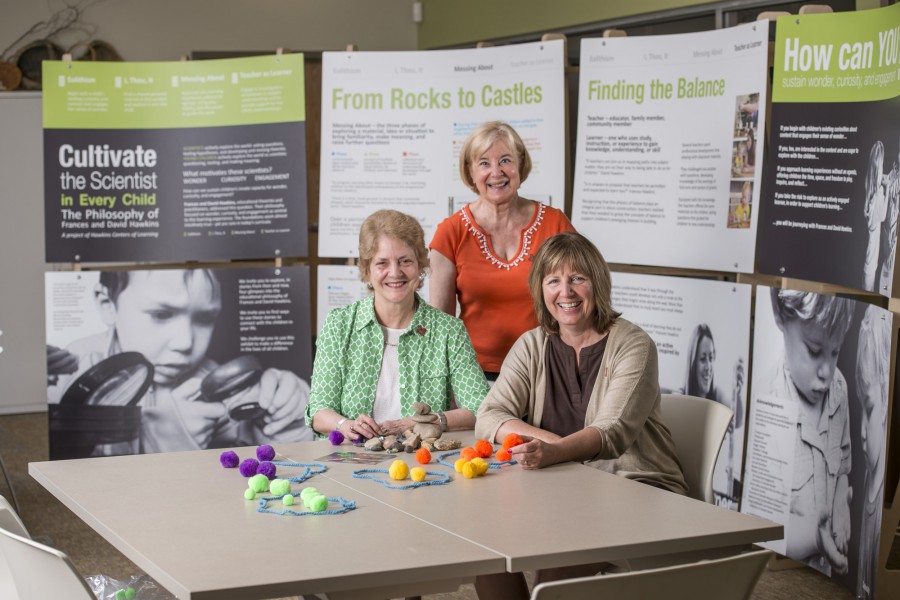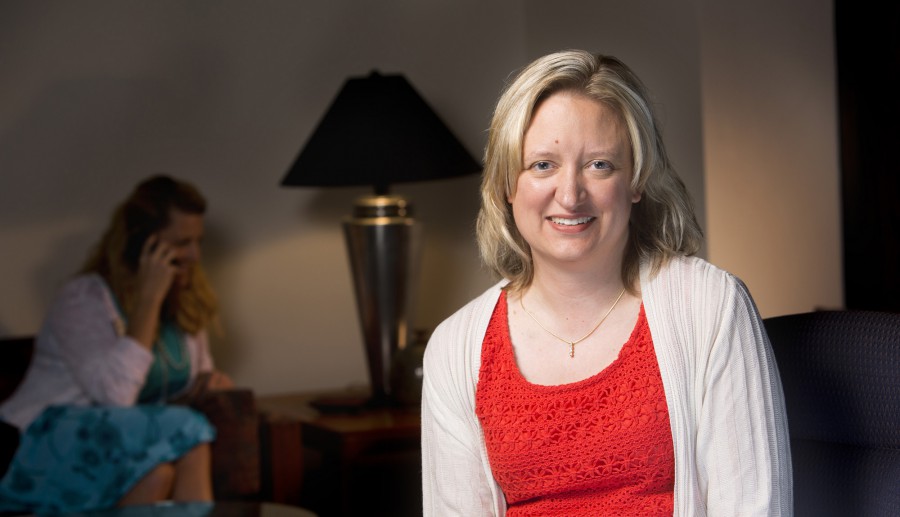Fostering Early Math Learning
Playing with blocks may, like learning to count, help prepare preschoolers to succeed at math.
Giving early childhood educators tools to foster math learning in 3- and 4-year-olds’ everyday activities is the aim of Math Early On. During the two-year pilot project, UNL researchers are devising and assessing professional development activities for preschool teachers at three Educare schools in Lincoln and Omaha, Neb. More than 700 Nebraska children attend Educare schools, which serve at-risk children from birth to age 5 and their families.
“We want to help teachers better understand the big math concepts that young children should be learning and how these ideas might play out in multiple settings, whether it’s in the classroom or during outdoor play,” said Ruth Heaton, project leader and Gilmartin Professor of Math Education.
Research shows rote counting and memorization don’t help preschoolers develop the higher-level mathematical reasoning skills needed for later academic success. Young children should be learning to recognize patterns and shapes, understand quantity and develop number sense, Heaton said.

Lessons that feel like play – stacking building blocks, exploring shapes, using measuring cups, playing with recycled materials or exploring nature – can instill these concepts.
With a $528,071 grant from the Buffett Early Childhood Fund, Math Early On builds on what UNL researchers learned from their successful Primarily Math program for K-3 teachers.
Incorporating proven research is central to Educare’s mission, said Carolyn Pope Edwards, Willa Cather Professor of Psychology and Child, Youth and Family Studies. Supported by the Buffett Fund, Educare aims to narrow the achievement gap through full-day, year-round educational programs. The University of Nebraska’s Buffett Early Childhood Institute is an Educare Lincoln research partner.
“We want to help teachers better understand the big math concepts that young children should be learning and how these ideas might play out in multiple settings.”
Victoria Molfese, Chancellor’s Professor of Child, Youth and Family Studies, said one goal is helping educators become more confident in recognizing math learning opportunities in their classrooms.
Researchers will assess teachers’ and students’ beliefs about their math abilities. The team hopes the project becomes a model for the nation’s 21 Educare schools, including Educare Winnebago (Neb.), which opened in 2014 as the first to serve an American Indian reservation.


